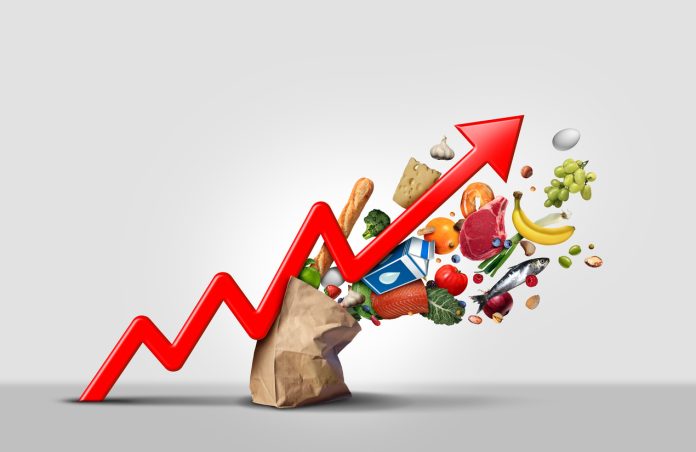Elena-Alexandra Calistru is a member of the EESC, and rapporteur for its opinion on Leaving the crises behind – Measures for a resilient, cohesive and inclusive European economy. Here, she highlights the cost-of-living crisis by discussing its deeper implications beyond the headlines and numbers
While headline inflation figures suggest Europe’s cost-of-living crisis is subsiding, conversations with citizens across the continent tell a different story. The cumulative effects of consecutive shocks have created structural vulnerabilities that standard economic indicators – those tidy abstractions beloved by policymakers – consistently fail to capture.
Twice bitten, permanently shy?
For my generation – those of us who entered the labour market during the 2008 financial crisis only to face another economic upheaval in our prime working years – this represents a second major shock at a crucial life stage. Lightning has struck twice, and the scars run deep. We’ve spent our careers navigating uncertainty, just as many finally gained a solid footing. This isn’t merely about temporary price increases; it’s about eroding fundamental economic security as purchasing power diminishes unevenly across society.
Community organisations are witnessing first-hand widening disparities in how inflation impacts different regions and income groups. Lower-income households have seen expenditure on essentials climb dramatically, with real wages falling at the peak of the crisis. The recovery remains uneven, with the most vulnerable still struggling to regain lost ground.
The false choice that costs us all
Europe’s response has been hampered by a stubbornly persistent false dichotomy: productivity versus wellbeing, competitiveness versus social protection. This intellectual cul-de-sac leads nowhere useful and leaves the space open for populist solutions that promote magic solutions to complex problems.
Because the truth is more complex and more challenging: Europe cannot achieve lasting competitiveness without addressing well-being; nor can it sustain its distinctive social model without addressing fundamental productivity challenges. We’re asked to choose between two doors when we should be knocking down the wall between them.
From reactive to proactive: A civil society prescription
After consulting organisations representing consumers, workers, and vulnerable communities, a clear path forward emerges:
First, establish a comprehensive ‘economic resilience monitoring system’ with real-time tracking of systemically significant prices and supply vulnerabilities. This early warning mechanism would enable targeted interventions before shocks propagate throughout the economy – moving from economic autopsy to preventive medicine.
Second, create targeted support systems using granular household data. Blanket approaches have proven as effective as treating pneumonia with band-aids. Organisations working directly with affected communities emphasise the need for precision in identifying those most at risk.
Third, formalise structured consultation processes throughout the policy cycle. Economic policies crafted with input from those who will live with their consequences consistently outperform those designed in insulated policy chambers.
The security-prosperity paradox
Just as inflation begins to moderate, geopolitical tensions are forcing difficult conversations about Europe’s security and economic priorities. Rising trade tensions and necessary defence spending create additional pressures on already stretched public budgets and household finances.
Let me be direct: The luxury of outsourcing our security has expired. As a representative of civil society, I never imagined advocating increased defence spending while so many social and economic priorities remain underfunded. Yet wishful thinking won’t protect European citizens or values in today’s increasingly dangerous world.
Every euro allocated to defence represents a euro not invested in education, healthcare, or the green transition. This trade-off is painful but unavoidable. However, this isn’t a binary choice between guns and butter – it’s about ensuring both security and prosperity through smarter allocation of resources.
Civil society’s role isn’t merely to demand more spending but to demand better spending. Europe’s fragmented defence efforts aren’t just inefficient – they’re fiscally irresponsible. We need coordinated investments that deliver actual security without unnecessarily diverting resources from other priorities.
Similarly, escalating trade tensions risk creating a new wave of ‘tariff-lation’ – price increases driven by trade barriers rather than monetary factors. These geopolitical dynamics might become the next chapter in Europe’s cost-of-living story unless addressed strategically.
Democracy and security: Two sides of the same coin
Civil society must recognise that security is the foundation upon which social and economic development is built. Yet we must also insist that democracy, the rule of law, and social cohesion are equally essential elements of Europe’s resilience – they
represent our values and our strength.
The strongest protection against external threats comes not only from military capability but from maintaining the vibrant, participatory, and just society that defines Europe. Security isn’t a distraction from our social and economic agenda – it’s the precondition for its success.
As representatives of civil society, we must push decision-makers to explain to citizens not just why defence investments are necessary, but how they contribute to our broader vision of a Europe that protects its values as fiercely as it defends its borders.
From crisis management to transformation
The path forward requires boldness, pragmatism, and a willingness to challenge orthodoxies. Europe stands at a historic juncture, where addressing the cost-of-living crisis means more than returning to a pre-crisis state: it means transforming our economic model to build genuine resilience.
The complexity of today’s challenges demands humility. Rather than pretending to have universal solutions, we must recognise the interconnected nature of these issues and pursue balanced policies that address both today’s pressures and tomorrow’s needs. In this endeavour, civil society doesn’t request a seat at the table – it demands recognition that there is no table without it.











